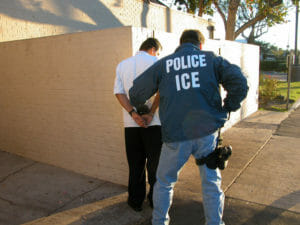Seven Years of Scandal
The latest plot twists are stunners, even as they unfold against the scandalous backdrop of the Bush administration's sorry regulatory record.WASHINGTON — The latest plot twists are stunners, even as they unfold against the scandalous backdrop of the Bush administration’s sorry regulatory record.
On a single day last week, the House Transportation and Infrastructure Committee aired testimony from Federal Aviation Administration inspectors who discovered gross safety violations at Southwest Airlines — and were rebuffed by their superiors when they tried to force compliance with basic rules. Across the Capitol and at almost the same hour, the Senate Banking Committee was probing why neither the Treasury Department nor the Securities and Exchange Commission — or any other individual or agency in the government — could see the collapse of the investment bank Bear Stearns coming until it was hard and fast upon them and a $30-billion taxpayer-backed loan guaranty was needed to bail out the Wall Street giant.
A few days earlier, Labor Department investigators reported their findings on the role and performance of the Mine Safety and Health Administration in the Crandall Canyon Mine disasters in Utah that killed nine men last August. The mine safety agency was “negligent in carrying out its responsibility to protect the safety of miners,” the report said. It also failed to demonstrate that its approval of a risky method of coal extraction “was free from undue influence by the mine operator.”
If all of this is insufficient cause for alarm, there is always more. The Environmental Protection Agency has stacked its expert review panels with scientists who have ties to the chemical industry, according to a preliminary inquiry by the House Energy and Commerce Committee. Meanwhile, the EPA removed a public health scientist from a review panel after she testified publicly about the hazards of a fire retardant that is suspected of causing cancer.
There is little surprise left when someone — a whistle-blower, a member of Congress, a scientist who has been muzzled — reveals fresh insight into the evisceration of health and safety regulation or the retaliatory thrusts the Bush administration takes against those who dare complain. Seen in historical context, the meltdown of the credit markets, the unseemly Wall Street bailout and the shock that federal overseers seemed to display when it all cascaded upon them are merely a larger part of an ugly pattern. “Was someone asleep at the switch?” a puzzled Sen. Chuck Schumer, D-N.Y., asked of the financial wizards who came before the banking panel.
Not exactly. It is more accurate to say the switch has been turned off.
It has remained in the off position through seven years of scandal, embarrassment and, now, incalculable economic hardship that would have shamed any other administration into using the regulatory apparatus of the federal government for its stated purpose of safeguarding the public and taxpayers.
The switch that was turned off and helped to create the credit crisis is the same one that was flipped at the FAA, where the airlines — not travelers — are now known as “customers.” The specifics of this scandal are chilling: Southwest Airlines was allowed to continue flying and “potentially transporting as many as 200,000 passengers on at least 47 aircraft,” according to documents reviewed by the transportation panel, despite laws that require suspect planes to be grounded immediately. Beyond the Southwest case, the committee’s staff told lawmakers in a memo, “There is evidence that there may be a pattern of regulatory abuse and that these regulatory lapses may be more widespread.” FAA safety inspectors overseeing other airlines complained in private interviews with the committee staff that “they found it difficult to bring enforcement action against airlines” because FAA management is too close to airline management.
The parameters are unchanged, regardless of whether the agency in question is supposed to be protecting the public from unsafe aircraft, or unscrupulous lenders, or deadly mines or lead-laced toys from China. Industry representatives are chosen to regulate the industries they once worked for — and to which they fully intend to return. Budgets are gutted, staff is cut, whistle-blowers are bullied.
There is a long history of Republican presidents who staff government agencies with those who have ties to the industries they regulate. The idea of foxes guarding the henhouses is not new. What may be unprecedented — and take longer to undo once a new president takes office — is a culture of contempt for serving the public that spans so many departments, and likely has done deeper harm than we now know.
Marie Cocco’s e-mail address is mariecocco(at)washpost.com.
© 2008, Washington Post Writers Group
Your support matters…Independent journalism is under threat and overshadowed by heavily funded mainstream media.
You can help level the playing field. Become a member.
Your tax-deductible contribution keeps us digging beneath the headlines to give you thought-provoking, investigative reporting and analysis that unearths what's really happening- without compromise.
Give today to support our courageous, independent journalists.



You need to be a supporter to comment.
There are currently no responses to this article.
Be the first to respond.